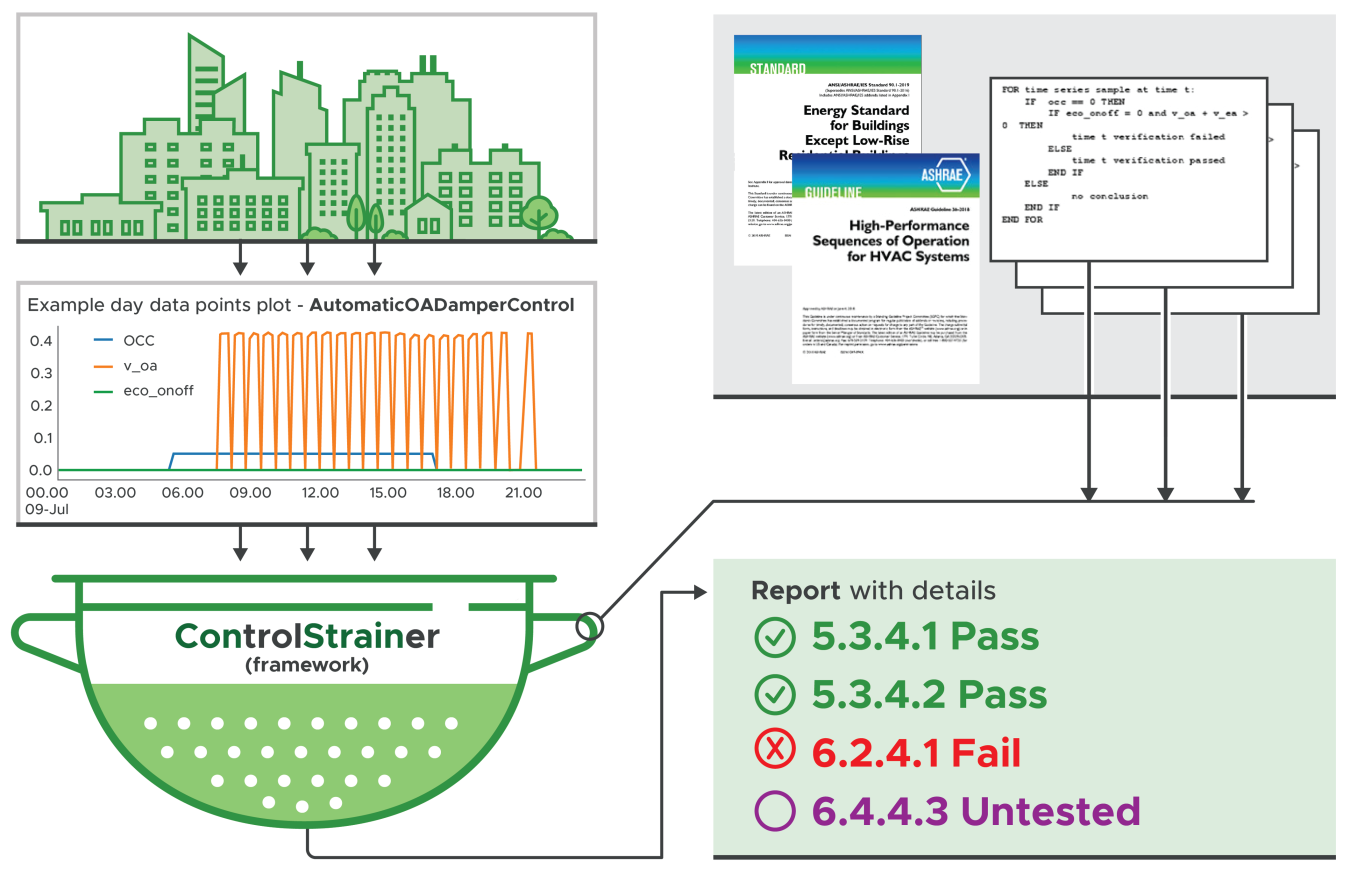
ConStrain executes checks on BAS data streams to verify that building operations comply with a control specification. ConStrain has applications to code-compliance, building performance standards, and commissioning.
Project website: https://github.com/pnnl/ConStrain
Performer: Pacific Northwest National Laboratory (PNNL) - Richland, WA
Project term: FY22 –
DOE funding: $300,000 in FY24; $550,000 to date
Funding Opportunity: Emerging Technologies - Building Controls core funding
PROJECT OBJECTIVE
U.S. cities are moving to a regime in which buildings must comply with energy code not only on their first day of occupancy, but on an annual. A key capability that can support this scenario is continuous monitoring of building operations and verification that they comply with control provisions in code. Anecdotal studies have shown that many buildings currently do not, and that bringing the operations of these buildings up to code can play a significant role in improving their overall performance and bringing them closer to compliance.
ConStrain (short for Control Strainer) is an open-source library and API (application programming interface) for analyzing BAS (building automation system) data streams for adherence to an operational specification, which can correspond to code (e.g., ASHRAE 90.1) or to a high-performance guideline (e.g., ASHRAE Guideline 36). Checks can be programmed directly or learned by training ConStrain on data streams from compliant buildings. The team is currently implementing checks for all ASHRAE 90.1 control requirements in order of their impact on building performance. Checks for IECC and ASHRAE Guideline 36 will be implemented in the future. ConStrain is also being integrated with Semantic Modeling capabilities to enable automated configuration and installation.
ConStrain has applications to code-compliance, BPS (building performance standards), and commissioning.
CONTACTS
DOE Technology Manager: Amir Roth
Principal Investigator: Yan Chen, PNNL

